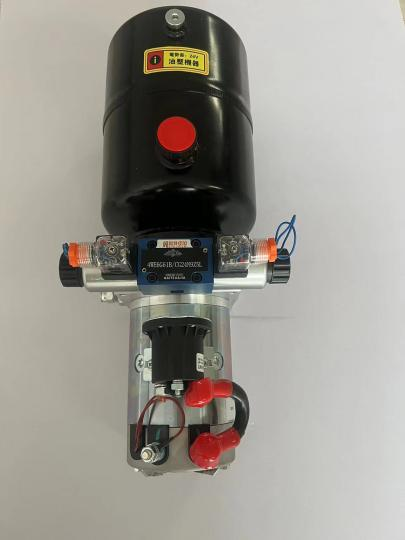des . 10, 2024 11:00 Back to list
Hydraulic Cylinder Grease Products for Optimal Performance and Maintenance Solutions
The Importance of Grease in Hydraulic Cylinder Applications
Hydraulic cylinders are essential components in a multitude of industries, including construction, manufacturing, automotive, and aerospace, whereby they convert hydraulic energy into linear motion. To ensure the smooth operation, prolonged service life, and optimal performance of these hydraulic systems, the use of proper lubricants, particularly grease, plays a critical role.
What is Grease and Why is it Used?
Grease is a semi-solid lubricant that comprises a base oil (usually mineral oil), a thickener, and various additives to enhance its performance. Unlike oils, which may drip or run away from the application site, grease stays in place, providing better lubrication at the points where it is applied. This characteristic is especially important in hydraulic cylinders, where high pressures and varying temperatures can lead to lubrication challenges.
Types of Grease for Hydraulic Cylinders
The selection of grease for hydraulic cylinders depends on several factors, including operating temperature, load-bearing requirements, and environmental conditions. Here are some common types of grease used
1. Lithium-based Grease This is one of the most widely used greases in hydraulic applications. It has excellent water resistance, thermal stability, and good mechanical properties. Lithium greases are suitable for a vast range of temperatures, making them a versatile choice.
2. Calcium-based Grease Known for its excellent water resistance, calcium-based greases are often used in environments exposed to moisture. However, they do not perform as well in high-temperature conditions compared to lithium greases.
3. Polyurea Grease Offering high-temperature stability and excellent oxidation resistance, polyurea is increasingly utilized in high-performance applications. Though typically more expensive, it can provide longer-lasting lubrication in demanding environments.
4. Synthetic Grease For extreme conditions, synthetic greases are often formulated to perform where traditional greases would fail. They have superior thermal stability, lower friction coefficients, and can operate effectively in a wider range of temperatures.
Advantages of Using Grease in Hydraulic Cylinders
1. Reduced Friction and Wear Grease forms a protective layer on moving parts within the hydraulic cylinder, significantly reducing friction and minimizing wear and tear. This leads to improved performance and a longer service life for the equipment.
grease hydraulic cylinder products

2. Seal Integrity Grease helps to improve the sealing in hydraulic systems, preventing fluid leaks that can compromise the efficiency of the system and lead to operational failures.
3. Contaminant Resistance Grease helps encapsulate contaminants, reducing the tendency for dirt and debris to penetrate critical components. This is particularly beneficial in construction and outdoor applications, where exposure to such contaminants is common.
4. Thermal Management Grease can also assist in managing heat within hydraulic systems by aiding in the dissipation of heat generated during operation, particularly in high-load scenarios.
Best Practices for Greasing Hydraulic Cylinders
To maximize the benefits of grease in hydraulic cylinders, it is important to follow best practices
1. Regular Maintenance Implement a regular greasing schedule based on manufacturer recommendations and operational conditions. Lack of lubrication can lead to premature failure of hydraulic components.
2. Choose the Right Grease Assess the operating environment, temperature ranges, and specific requirements of the hydraulic cylinder to select the appropriate grease type.
3. Avoid Over-greasing Too much grease can lead to increased pressure inside the cylinder, potentially damaging seals and causing leaks. Always adhere to the manufacturer’s specified grease amount.
4. Monitor Condition Regularly check the condition of the grease in use. Contaminated or degraded grease can lead to more severe issues within the hydraulic system.
Conclusion
In summary, the choice and maintenance of grease in hydraulic cylinder applications is not just an optional practice but a crucial element that impacts functionality, reliability, and longevity. By understanding the role of grease and implementing best practices, industries can ensure their hydraulic systems operate efficiently and effectively, reducing downtime and repair costs.
-
1.5 Ton Lifting Cylinder-Hebei Shenghan|Heavy-Duty Lifting, Precision Engineering
NewsAug.18,2025
-
1.5 Ton Lifting Cylinder-Hebei Shenghan|Precision Hydraulic Solutions&Industrial Lifting
NewsAug.18,2025
-
1.5 Ton Lifting Cylinder 70/82-40-290-535 - Hebei Shenghan Hydraulic Machinery Co., Ltd.
NewsAug.18,2025
-
1.5 Ton Lifting Cylinder 70/82-40-290-535|Hebei Shenghan Hydraulic Machinery Co., Ltd.
NewsAug.18,2025
-
1.5 Ton Flipping Oil Cylinder 70/82-40-217-720: High Performance
NewsAug.18,2025
-
1.5 Ton Lifting Cylinder 70/82-40-290-535 - Hebei Shenghan Hydraulic Machinery Co., Ltd.
NewsAug.17,2025
